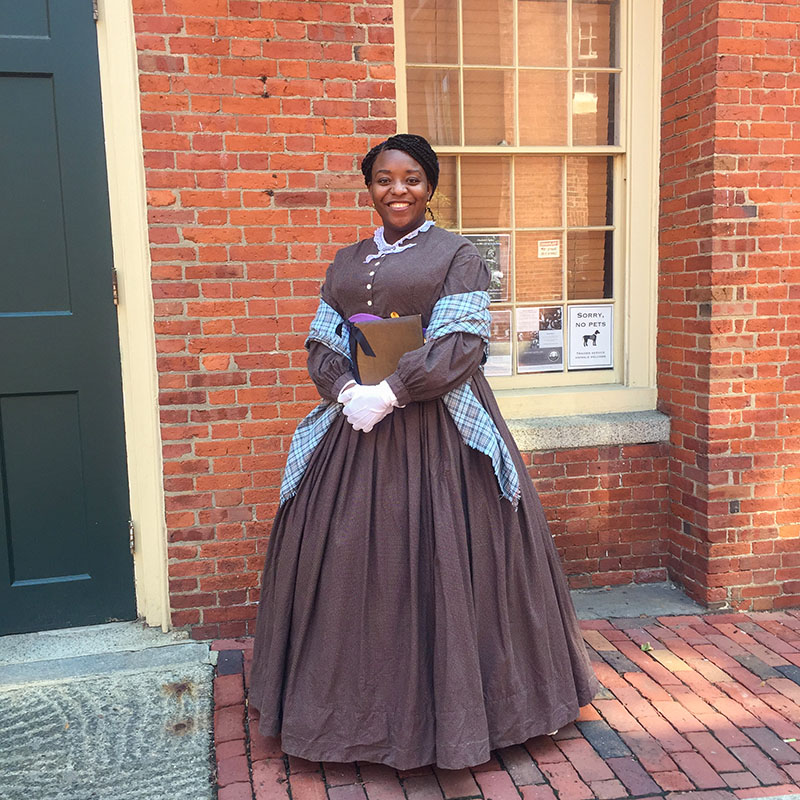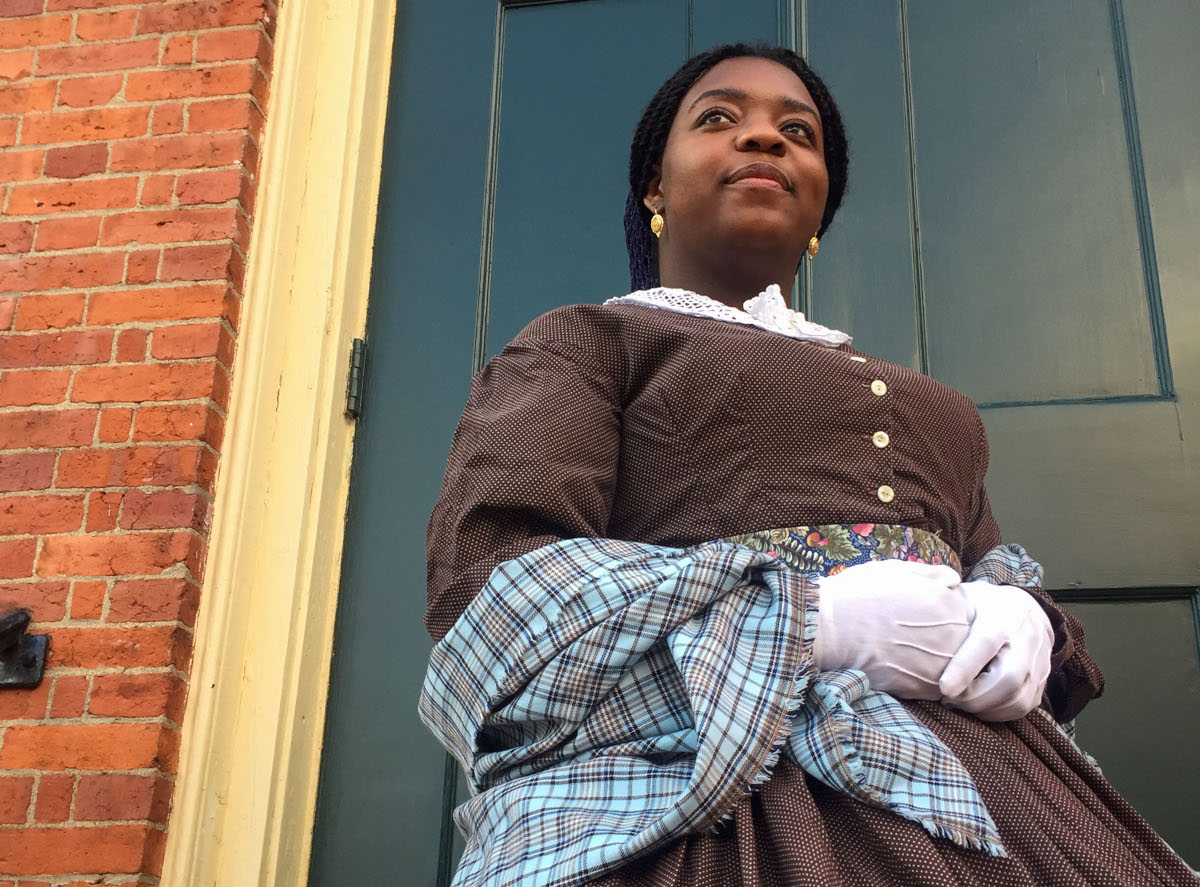Salem is known around the world for its connection to witches and draws nearly half a million tourists each year who want to immerse themselves in all things witchcraft and supernatural.
But what many people don’t know—including many North Shore locals—is that Salem was also a hub of the abolitionist movement in the years before and during the Civil War.
History Alive, Inc., tells a small piece of that story through “Charlotte’s Salem,” a walking tour of downtown Salem set in the 1850s that’s led by a costumed actor playing abolitionist and educator Charlotte Forten as a very young woman.
Now, thanks to funding from the Essex National Heritage Commission’s 2022 Essex Heritage Partnership Grant Program, History Alive is opening up the “Charlotte’s Salem” experience to people with disabilities and others who may not be able to access the walking tour.
It’s doing this by creating a portable adaptation that brings “Charlotte’s Salem” to audiences with ambulatory challenges and economic barriers.

“The grant will help us take this piece and adapt it for audiences that are not as mobile and might have a lot of difficulty moving around the cobblestones and the uneven brick,” says Kristina Wacome Stevick, president and artistic director of History Alive, an immersive, historically themed theater company best known for The People Versus Bridget Bishop, which is celebrating its 30th anniversary this year. “Salem is blessed to have these beautiful brick sidewalks and cobblestones, but it’s not easy if you’re in a mobility device, and it’s not easy if you’re unsteady on your feet.”
The action of the walking tour—and the forthcoming portable exhibit—takes place just after Charlotte’s graduation from Salem Normal School and before she eventually relocated to South Carolina. Born in 1837, Charlotte was the first graduate of African descent from Salem State College (then Salem Normal School) and the first African American to teach an integrated classroom in Salem. She was also a member of the Salem Female Anti-Slavery Society.
“She is describing the Salem that she knows and showing her guests locations of importance to her story and to the fight for equal rights for African Americans,” Wacome Stevick says.
For instance, she takes people to places like Lyceum Hall where several famous abolitionists spoke, as well as places where African Americans were excluded from entering, like the East India Marine Society’s museum, which would eventually become the Peabody Essex Museum.
She also talks about African American history in Salem, like African Americans who were involved in the Salem Witch Trials, and the tale of Jenny Slew of Ipswich, who was born to a free white woman and an enslaved Black man and who was kidnapped and enslaved by John Whipple. She eventually sued Whipple and won back her freedom in a jury trial at Essex Superior Court of Judicature in Salem.
The Essex Heritage grant is allowing History Alive to create a portable program that will include carefully designed and crafted miniatures of the buildings, as well as bits of Charlotte’s poetry, pieces of parchment, and artifacts like a diagram for The Anti-Man-Hunting League, which formed as a way to resist the Fugitive Slave Act, to demonstrate how to protect people against bounty hunters.
The program aims to allow people to get the experience of Salem without the walking and can travel to schools and other locations.
“We thought about how to combine the actual experience of being in Salem and being a part of the downtown,” Wacome Stevick says. “Ultimately, we landed on wanting to include the tactile and multisensory experiences that we think are important.”
That was especially important because of Charlotte herself.
“That natural world was important to Charlotte and her experience, Wacome Stevick says. “She walked from Salem to Nahant because she loved the ocean and being outside.”
In addition to the work on adapting “Charlotte’s Salem,” History Alive will have a busy fall with its other programming, too, including “Cry Innocent” and a new program called “No Ghosts at the Old Town Hall,” a kind of scavenger hunt meets haunted house meets escape room.
“It will be an audience-immersive experience where they will be helping to free the spirits of these people who are trapped at the Old Town Hall,” Wacome Stevick says.
Whether it’s a walking tour of Salem with Charlotte Forten, playing the jury in Bridget Bishop’s witchcraft hearing, or freeing trapped ghosts from the Old Town Hall, each of History Alive’s programs is immersive and interactive, which is crucial to its mission. Audience members are asked to engage in history and social justice issues in a way that’s exciting and even nerve-racking.
“I think it’s important because it’s so memorable as an experience. When a person is engaging their imagination and their empathy, they’re processing information in a heightened way,” Wacome Stevick says. “Their sensitivity is heightened.”
More info at historyalivesalem.com

